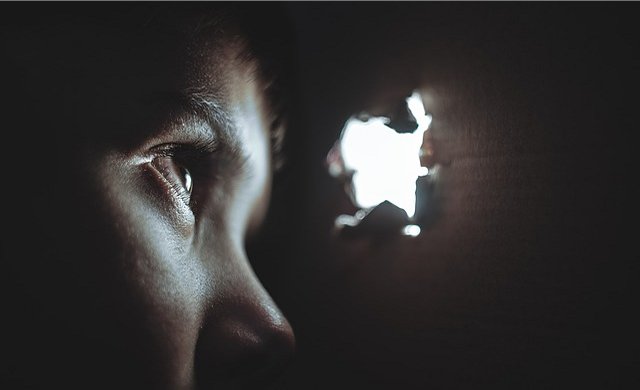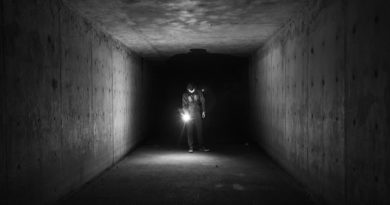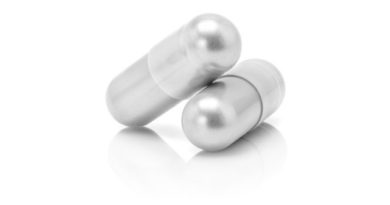The Fair Heavens
Classes were over, and the air was filled with the charmed singing of warblers. It was warm enough to leave my cardigan in the closet as I hauled some of my books and bags to the shady grounds of Blenheim Hall. Long stalks of white, Beard Tongue poked through the earth wherever the sun pierced the canopy above. It was quiet. Convocation, with all it’s thinly veiled, pagan rituals had come and gone. Most of the girls had left the moment their finals were done and their papers were turned in — off to join their parents at second homes in sun-splashed enclaves or to take giddy tours of Europe where they might steal away to kiss exotic men.
It sounded perfectly awful to me. Miller University was posh and beautiful but dull as a washcloth during the summer months, and I wanted nothing more. Me and the bees. Me and the groundskeepers. Me and myself.
“Miss Porter?”
I had reached the red brick façade of the handsome dorm, whose big rooms and pretty views were normally reserved for upperclassman. In the off-season, though, it was open to weird, young students like me who stayed on for the uneventful dog-days. My plan was to enjoy the afternoon reading after I settled in, perhaps even sleep a little and forget that I was anyone’s daughter. A conversation was not on my agenda.
I turned to face the sharp voice that disrupted my daydream and saw a tall, careworn man with excellent posture. He stood with his arms folded in the middle of the meandering, cement path, handsome but gawky. “I’m Professor Robert Ballard.”
“A pleasure to meet you.”
“We begin tomorrow,” he said, pursing his lips.
“Yes. What time, professor?”
“It’s not a season for hurried schedules so, ten o’clock I think.” He looked me up and down with an appraising eye. “Dean Hammerschmidt said you’re a sensible girl. I can see that she was right.”
“I’m going to declare art history as my major. I can take short hand, too.” My pointed glasses had slid down my nose, and I pushed them back up. “I’m not afraid to work hard.”
Some chunky, brown butterflies tumbled by in a small group. Maybe they were moths. It was the time of year where things were hatching. There were already flies swarming the trash bins at the back of the dining hall.
“I saw your father’s work in Architectural Digest last year. A library for a town in Southern California. I can’t remember the name.”
“Orange Hills,” I murmured, remembering the stress he complained about. And how he managed that stress.
“It was… striking. Perhaps a bit harsh.”
“‘New visions for a new world’, he always says.”
My arms were beginning to shake from holding my suitcase and a stack of books. The professor never noticed.
“I’m not in Italy this summer because I need peace and quiet. I know too many people in Florence and Rome. Venice too. I’m scintillating company.”
I searched in vain for a trace of irony but found none. “I’ll see you tomorrow, Professor.” I turned toward the heavy door of Blenheim Hall, ready to retire to the quiet pleasures of not having a roommate for a change. No gossiping jezebel to judge my silences and tell everyone I’m a head case.
“This summer is pivotal,” he called out. “I’m finishing a big paper.”
I turned, halfway through the door, hunched over like a gargoyle and stared at him. I noticed that his dark hair was a bit too long and it hung over his right eye. He reminded me of an Impressionist painting — a flickering, inconsistent combination of impulses that resolved themselves into the shape of a man but in reality, were just illusions.
⊕
On the far, western edge of campus, a cluster of weathered structures huddled together like old women clucking over secrets. These were the original farm buildings, a main house and two large sheds that had been converted into fine housing for a few, select faculty members like Robert Ballard. The largest of these was the home of Miller’s president, Gwendolyn Hodges-Wilkinson, an imposing woman who smiled only when she was criticizing someone or something. She smiled a lot.
But she too, was gone for the summer months. These were days of reprieve, and I relished the blustery morning as I strode past old cork and holly trees that lined the gravel path. Their roots reared from the earth, asserting their importance, defying gravity. On my left, a lacrosse field, neatly trimmed and un-peopled, rested from the beating it took during the previous few months. Patches of dirt marked the especially well-trodden areas, a testament to aggressive girls hungry to undermine each other on their way to their goals. Dandelions speckled the edges of the field instead of spectators, cheering on the newfound quiet. To my right, was a vast and beautiful English-style garden. Amidst the unbloomed bee balm, shaggy fringe trees, and budding damask rose, a chubby gardener wandered in search of weeds.
When I looked ahead, I was greeted by the sight of Professor Ballard standing in the doorway of his cottage, looking at the sky and smoking. His linen trousers were flawlessly tailored to his lean frame.
“You stomp like a horse,” he said upon my arrival. His eyes roamed the clouds for a moment longer. “It’s actually adorable. Cigarette?”
I blinked.
“Relax. I’m not coming on to you.”
I think my jaw dropped because I remember a shot of bright, spring air hitting the back of my throat with a pang.
“Come now, Miss Porter, I’m sure your mother has friends like me — some hair dresser, some decorator or other. You understand,” he said, opening a tortoiseshell cigarette case and offering it to me. “They’ve got a hint of cinnamon. I know you can afford quality but most students are on a budget no matter who their father’s are.”
I took the cigarette and he lit it with a matching lighter. We listened to the birds and puffed away in silence. I thought about my father’s brother, Carson, a shy banker who never married and lived in New York City. He was rarely discussed and when he was, it was in quiet tones with lots of raised eyebrows and sucking in of cheeks. I liked Uncle Carson. He gave me a pair of patent leather shoes when I was seven and, I thought I was so grown up. Yes, I understood.
Minutes later, Ballard and I — the deviant and the nerd — stepped inside his dim but inviting cottage. Light streamed in from a few windows on the left, playing across a pair of worn leather armchairs near a fireplace. Further on, a narrow set of stairs led up to what I imagined was a long room under the slanted roof. Dead ahead, in the shadows I could make out a galley kitchen and in front of it, dominating the space like an insistent prince, was a grand farm table covered with papers, manuscripts, and unpacked, cardboard boxes.
“I have good coffee,” the professor said as he cracked open a window. “You’ll need it if you don’t intend on falling asleep. Prepare for boredom.”
Click below to read on…




